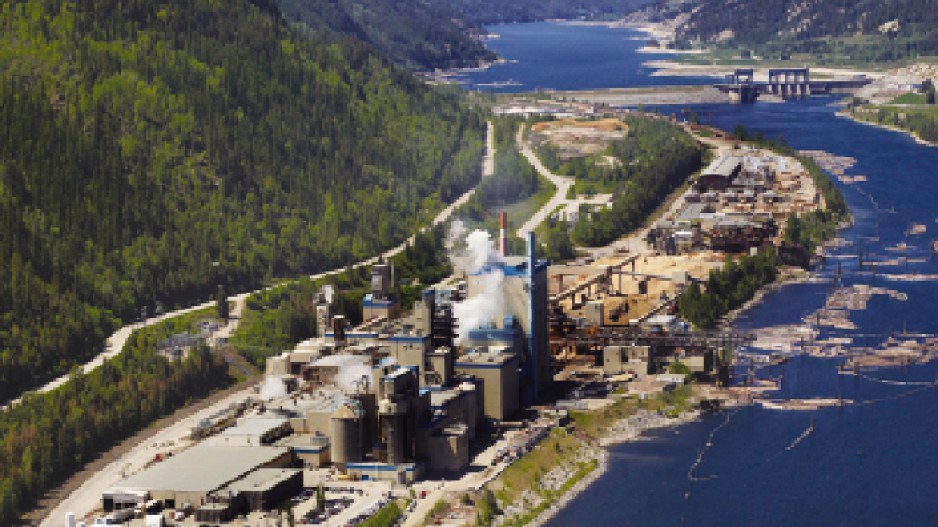A B.C. pulp mill's ability to sell "green" power to BC Hydro at premium rates is the subject of a $250 million arbitration claim that's been filed against the Government of Canada under the North American Free Trade Agreement (NAFTA).
Vancouver-based Mercer International (NASDAQ:MERC), which owns the 439-employee Celgar pulp mill near Castlegar, claims BC Hydro and the province have discriminated against it by preventing the mill from selling its biomass-produced power into the grid as other mills throughout the province do.
Brian Merwin, Mercer's vice-president strategic initiatives, explained that in 2008 BC Hydro intervened to block an agreement between Celgar and FortisBC, the province's other utility, that would have allowed Celgar to buy cheap power through FortisBC and sell its green co-generation power to third parties such as BC Hydro at higher market rates.
Merwin said that decision, which was supported by the provincial government, has put Celgar at a competitive disadvantage when compared with other pulp mills in the province that generate power and sell it into BC Hydro's grid.
"They changed the rules," said Merwin. "That created discriminatory treatment for Celgar because, essentially, energy policy in the province is being applied unevenly, and what's happening is government policy is picking winners and losers."
Mercer filed a notice of intent to submit a claim to NAFTA in January, but shortly afterward met with representatives from the federal and provincial governments to try to resolve the issue.
Negotiations ended in a stalemate. Mercer subsequently proceeded with the $250 million arbitration claim.
The claim is based on past losses at a rate of $19 million per year since 2008, and further losses expected in the future.
Mercer bought the mill in 2005 and set about upgrading its co-generation facility to produce renewable power.
Celgar received $57.7 million in federal government funding in 2009 to improve mill efficiency; 81% of that funding was used to upgrade the co-generation facility to produce more energy to power the mill.
Excess power would be sold back into the grid at "green" rates, said Merwin, which command about $100 per megawatt hour on the market compared with $45 to $50 per megawatt hour for regular power.
Merwin said Mercer's plan was no different from deals Canfor (TSX:CFX), Domtar (TSX:UFS), Howe Sound Pulp and Paper and Tembec(TSX:TMB) struck with BC Hydro.
The difference is that Celgar is in the service territory of BC Hydro's biggest competitor – FortisBC.
In its arbitration claim, Mercer argued that it should be able to buy power from BC Hydro through FortisBC at "embedded" or cheaper rates – allowing it to power the mill at a relatively low cost, and sell its green power into the market at a higher rate.
"In failing to implement a uniform policy concerning access to embedded cost power … the province … and/or BC Hydro de facto have discriminated against Mercer and its investment in Celgar," the company wrote in its arbitration claim.
BC Hydro would not provide a spokesman to comment on the claim, but in an email to BIV wrote "the province and BC Hydro are continuing to review the NAFTA claim and provide support to the federal government." •




